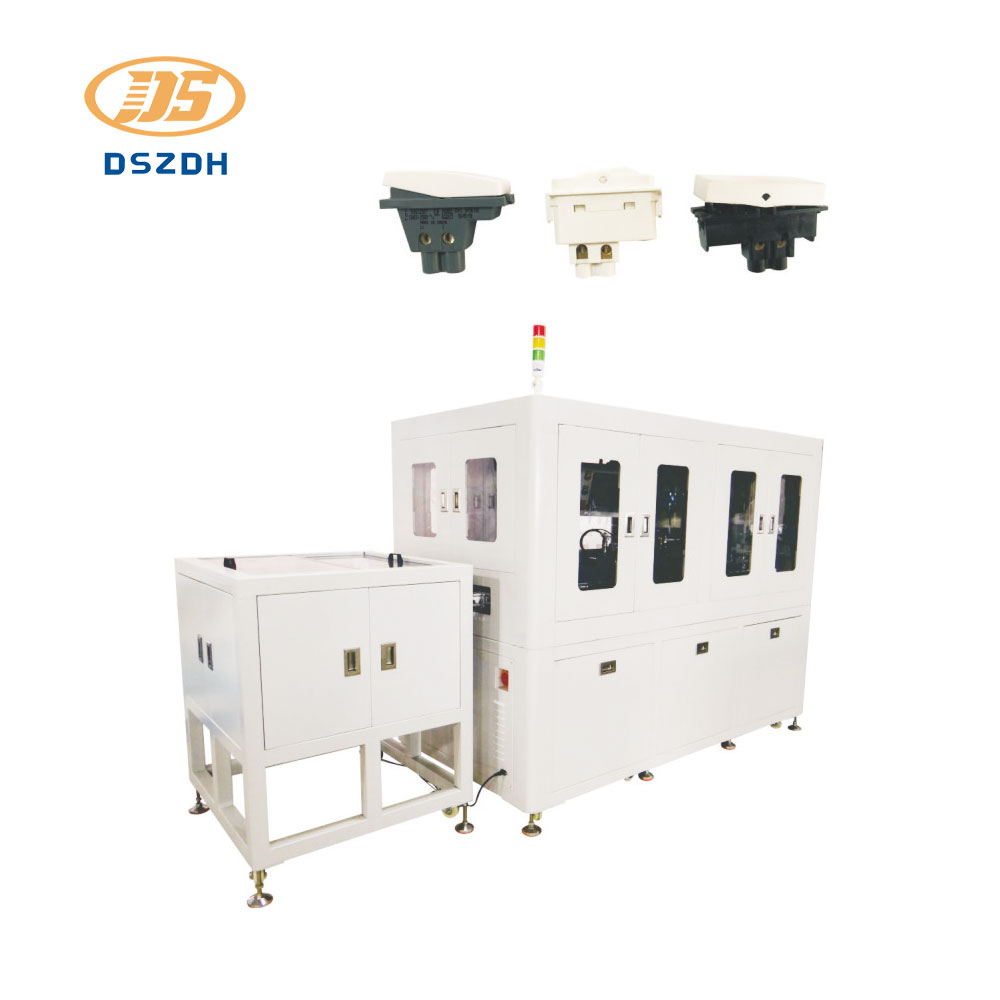What are points when selecting an automatic assembly machine for a manufacturing operation?
2024-06-28
When selecting an automatic assembly machine for a manufacturing operation, consider the following key points to ensure the machine meets your production needs effectively:

1. Compatibility with Products:
- Ensure the machine is compatible with the types of products you manufacture, including their sizes, shapes, and materials.
2. Production Speed and Throughput:
- Assess the machine’s production speed and throughput capabilities to ensure it can meet your production volume requirements.
3. Flexibility and Customization:
- Look for machines that offer flexibility in handling different tasks and can be easily reconfigured or customized for different products or assembly processes.
4. Precision and Accuracy:
- Evaluate the machine’s ability to perform precise and accurate assembly operations to maintain consistent product quality.
5. Integration with Existing Systems:
- Check if the machine can be easily integrated with your existing manufacturing systems, including conveyor systems, robots, and other automation equipment.
6. Ease of Use and Programming:
- Consider the user interface and programming capabilities of the machine. It should be easy to use and program, minimizing the need for extensive training.
7. Maintenance and Support:
- Assess the maintenance requirements and availability of technical support. Choose machines that are easy to maintain and come with reliable support from the manufacturer.
8. Quality Control Features:
- Look for machines equipped with quality control features such as sensors, vision systems, and real-time monitoring to ensure high product quality.
9. Energy Efficiency:
- Consider the machine’s energy consumption and choose energy-efficient models to reduce operational costs.
10. Safety Features:
- Ensure the machine is equipped with essential safety features to protect operators and comply with workplace safety regulations.
11. Scalability:
- Choose a machine that can be scaled up or modified as your production needs grow or change.
12. Return on Investment (ROI):
- Calculate the potential ROI by considering the initial cost, operational savings, increased production efficiency, and potential for reduced labor costs.
13. Warranty and Reliability:
- Check the warranty terms and the machine’s reliability record. Opt for machines with good warranties and a reputation for durability.
14. Supplier Reputation and Service:
- Research the reputation of the machine supplier, including their customer service, support capabilities, and the availability of spare parts.
By considering these points, you can select an automatic assembly machine that enhances your manufacturing operation’s efficiency, quality, and overall productivity.


